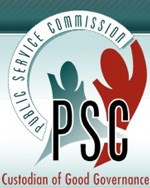Fewer complaints lodged at PSC

Complaints relating to poor service delivery, corruption practices, unethical behaviour and human resources, among others can be lodged with the PSC though either the National Anti-Corruption Hotline or the Rules of the PSC for lodging complaints regarding the public service, known as Complaints Rules.
In its Report on the Trend Analysis on Complaints Lodged with the PSC, the commission found that during the 2009/2010 financial year, 279 complaints were lodged. These complaints represented a 13.3% decline compared to the 322 complaints lodged during the 2008/2009 financial year.
Of the 279 complaints, 56% implicated national departments.
The complaints were received by a variety of sources, including public servants, members of the public, members of parliament, members of provincial legislatures and executive authorities.
The study showed that the majority of the complaints lodged during the period under review related to unethical behaviour (117 complaints) such as the irregular filling of posts or the abuse of power. This was also the case for the previous year.
Other complaints related to incidents of poor service delivery (44 complaints), HR matters (39), corruption/maladministration (28), unfair labour practice (12), and irregularities/discrimination (12).
Investigations
A total of 165 or 58% handled by the commission during the 2009/2010 financial year were finalised and closed. However, a majority or 122 did not fall within the PSC's Constitutional mandate and could therefore not be investigated by the commission. These complaints were referred to the relevant institutions for further handling, such as the Public Protector.
Of those that did fall within the commission's mandate, 15 investigations were conducted through desk-top audits rather than full-scale investigations where the veracity of the allegations made were determined. Seven complaints related to unethical behaviour, four to HR matters, three to service delivery and the remaining one to racism. Of these 15 desk-top investigations, 11 were not substantiated.
Of the total complaints lodged with the commission in the 2009/2010 financial year, 23 did not meet the criteria set by the Complaints Rules. Four of the complaints were a duplication of previously lodged complaints. A further one complaint was withdrawn at the request of the complainant.
The report noted that while the whistleblowers have the option of remaining anonymous, only 30% of the complainants in the 2009/2010 financial year chose to remain anonymous, compared to the 34% and 36% in the previous two reporting years.
Focused approach
"This increase in self-identification by complainants/whistleblowers could be indicative of the confidence they have in the Protected Disclosures Act 2000, which states that whistleblowers should be protected," said the report.
Phelele Tengeni deputy chairperson of the PSC said that the commission reckons that serious cognisance should be taken of the key findings emanating from the study. "It is hoped that this analysis of trends would deepen awareness of the prevalence of complaints raised by the public service," said Tengeni.
She said implementation of the recommendations would facilitate a focused approach in the fight against corruption.
Recommendations in the report include that departments should ensure that they have adequate investigative capacity that would ensure that complaints referred to them are investigated timeously and that comprehensive feedback is provided to the PSC.
As the majority of the complaints lodged with the PSC during the 2009/2010 financial year related to unethical behaviour and poor service delivery, the PSC recommends the following:
- That departments institute focused corrective measures prioritising the dominant type of complaints to prevent/limit the recurrence of similar complaints in future;
- That they conduct training sessions among their employees during which acceptable conduct, especially in relation to interaction with the public, is highlighted, and;
- That they launch campaigns to promote professional ethics in the public service, among others.
The commission added that it did not only investigate complaints by means of desk-top audits but also full scale investigations. It recommended that there should be an increase in the financial and human resources to all the commission to complete investigations successfully.
Source: SAnews.gov.za
SAnews.gov.za is a South African government news service, published by the Government Communication and Information System (GCIS). SAnews.gov.za (formerly BuaNews) was established to provide quick and easy access to articles and feature stories aimed at keeping the public informed about the implementation of government mandates.
Go to: http://www.sanews.gov.za





















